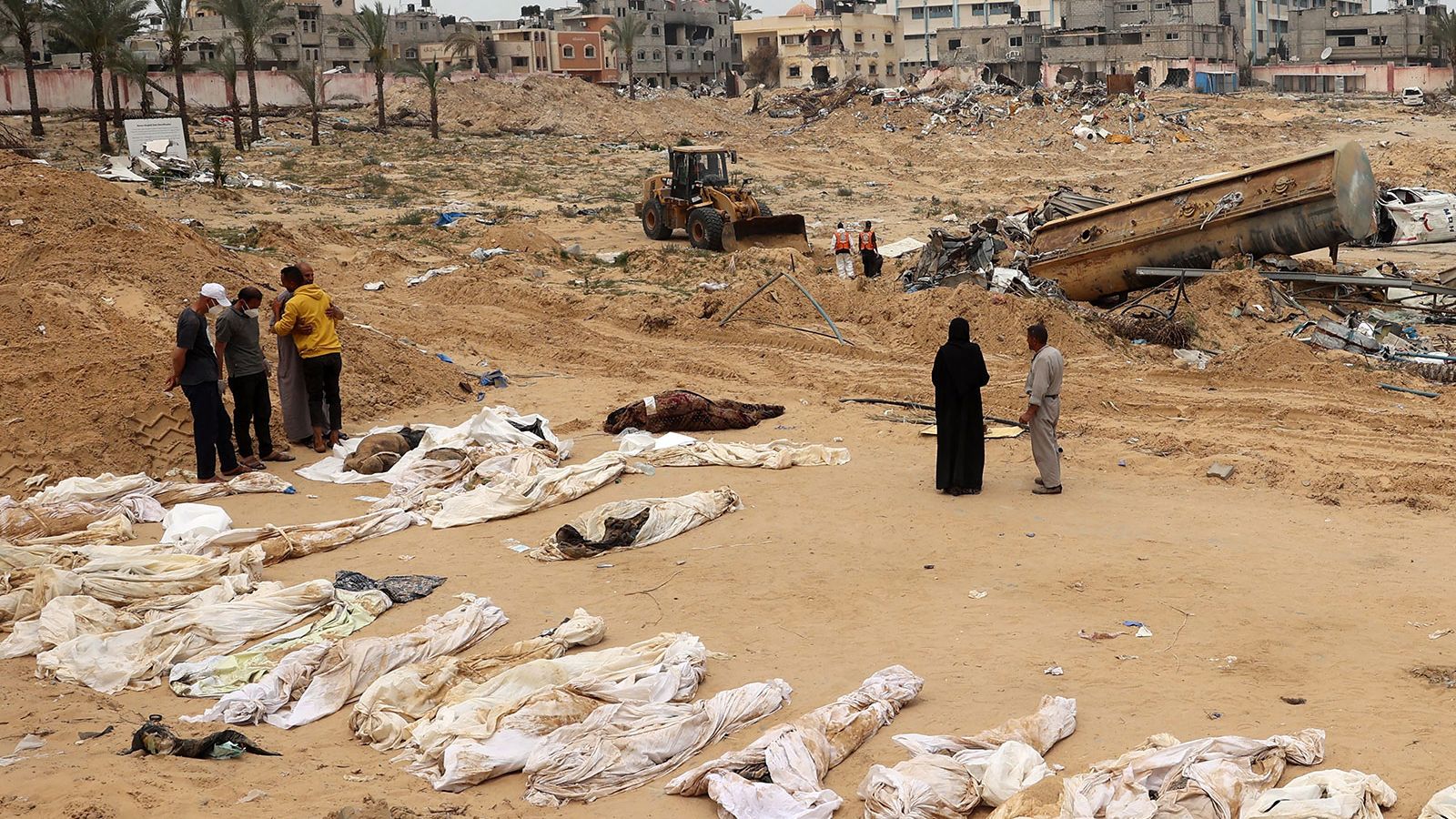Headline
Sudanese Migrants In Israel Fear Deportation After Coup
Published
2 years agoon
By
Editor
For nearly 10 years, Monim Haroon has only known one home: Israel. Like thousands of Sudanese migrants, he lives and works without legal status, fearing that a return to his native land would be a death sentence.
Israel’s normalization of ties with Sudan, announced last year, had raised fears among the migrants that they would lose their migrant status and be forced to return. Now, weeks after a military coup derailed Sudan’s transition to democracy, they dread being forcibly returned to a country under the full control of generals blamed for past atrocities.
“I am not against normalization,” said Haroon. “But the normalization should be through the civilian Sudanese government, not the military powers that now control Sudan.”
The asylum-seekers’ plight points to one of the less savory aspects of the so-called Abraham Accords, a series of deals reached between Israel and four Arab countries last year. The U.S.-brokered agreements with Sudan, the United Arab Emirates, Bahrain and Morocco — widely hailed as a breakthrough in Mideast diplomacy — were struck with unelected Arab leaders with little tolerance for dissent who were richly rewarded by the Trump administration.
Sudan’s military leaders, the driving force behind the agreement, secured the country’s removal from the U.S. list of terrorism sponsors, unlocking vital international aid and commerce.
READ ALSO: Sudan’s Prime Minister, Detained After Coup, Returns Home
But then last month, Sudan’s top military leader, Gen. Abdel-Fattah Burhan, disbanded the transitional government and ordered the arrest of civilian leaders, quashing hopes of a democratic transition after the 2019 overthrow of longtime autocrat Omar al-Bashir.
The coup, which has been condemned by the United States and other Western nations, has left Israel in a potentially awkward situation.
Israel has been silent on the coup and its aftermath, indicating it intends to maintain normalized ties. A report on the Israeli news site Walla that an Israeli delegation had secretly visited Sudan to meet with the coup leaders deepened migrant fears that they could soon be deported. The Israeli Foreign Ministry and Sudanese officials did not respond to requests for comment.
Sudanese and Eritrean migrants began arriving in Israel in 2005, with many of the Sudanese fleeing persecution in the western Darfur region and the country’s south. Seeking safety and opportunity in Israel, they made often dangerous journeys across Egypt’s rugged Sinai Peninsula.
Israel initially did little to stop the influx, but as more migrants arrived, the authorities began detaining thousands in remote desert prisons. And in 2013, Israel completed construction of a fenced barrier along its border with Egypt that mostly halted the migration.
The migrants’ presence has sparked a backlash among many Israelis who associate them with the crime and poverty in south Tel Aviv, where most of them settled. Right-wing governments in recent years have made various attempts to expel them.
Ayelet Shaked, a prominent right-wing politician, has described Sudanese migrants as “infiltrators” and said they should be sent back since ties have been normalized. She is now the interior minister in Israel’s new government, a position that oversees immigration policies.
“We are worried because she has always been against asylum-seekers,” Haroon said.
The Interior Ministry said the status of Sudanese migrants has not changed following the coup but declined to answer further questions.
Israel has resolved only a small fraction of the thousands of Eritrean and Sudanese asylum claims, deeming the vast majority to be economic migrants. Under international law, Israel cannot deport migrants back to countries where their life or basic freedoms are seriously threatened.
Sudan’s incarcerated former president al-Bashir was charged with genocide by the International Criminal Court for mass killings that took place in Darfur during the 2000s. The region remains unstable, with deadly tribal clashes still common. Since the October coup, at least 23 Sudanese protesters have been killed in confrontations between pro-democracy demonstrators and military forces.
“Although Israel does not send migrants back, consecutive decrees have purposefully made life unbearable for African refugees,” said Sigal Rozen, public policy director at the Israeli Hotline for Refugees and Migrants, an advocacy group that assists the Africans.
Most of the estimated 28,000 Sudanese and Eritrean migrants work in menial jobs and struggle to make ends meet. Their numbers have dwindled by half since the 2000s, with most traveling onward to third countries, considering it unsafe to return home.
In 2012, Israel ordered the deportation of over 1,000 migrants back to South Sudan after it gained independence, arguing that it was safe for them to go home. Those who voluntarily returned were given a cash incentive of about $1,000. The move was criticized by rights groups following South Sudan’s descent into civil war in 2013.
Stuck in Israeli legislative limbo, most African migrants are barred from basic social rights such as sick pay and driving licenses and are also subject to financial penalties. Among the most controversial of these was the “Deposit Law,” which limited asylum seekers to accessing only 80% of their salaries while they remained in Israel. The law, which returned the remainder of their salaries only if they left the country, was later reversed in 2020.
READ ALSO: World Bank Suspends Aid To Sudan After Military Coup
In April, Israel’s Supreme Court ordered the Interior Ministry to resolve thousands of the unanswered Sudanese asylum claims by the end of the year or grant them temporary residency.
Sudan was noticeably absent from anniversary commemorations of the Abraham Accords earlier this fall. As Israel and the other three nations trumpeted high-level visits and opened embassies, there has been little on the Sudan front beyond a surprise meeting between Israeli and Sudanese officials in the UAE weeks before the coup. Sudan also said in September that it would seize the assets of companies linked to Hamas, the Palestinian militant group that rules Gaza.
Haim Koren, former Israeli ambassador to Egypt and South Sudan, attributed the delays to concerns by Sudanese officials over whether Israel’s new government and the Biden administration would follow through on the promises of the normalization agreement. Both have expressed strong support for deepening and expanding the Abraham Accords.
“There remain areas that still require negotiation, but I expect full relations to be established,” said Koren. “Maybe not today, but it will happen.”
(AP)
You may like


400 Bodies Found In Mass Grave In Gaza Hospital


UK Slams Fresh Sanctions On Iran After Israel Attack


JUST IN: Iran Summons French, British, German Envoys Over Reactions To Israel Attack


Tension Heightens As US, Britain , France, Others React To Iran Strikes On Israel


III World War Looms As US Openly Supports Israel, Downs Drones Fired By Iran


Over 300 Drones, Missiles Fired From Iran Injured 12, Says Israel Army
Headline
Pop Star Justin Bieber Sparks Concern After Seen Crying Amid Rumours Of Rift With Wife
Published
11 hours agoon
April 28, 2024By
Editor
Pop sensation Justin Bieber has stirred concern among fans after posting a series of emotional selfies on Sunday, that has been linked to the rumoured split with his wife.
The 30-year-old singer took to Instagram over the weekend to share multiple photo dumps, offering glimpses into various aspects of his life.
From his surprise appearance at Coachella, where he performed during Tems’ set, to moments of leisure such as playing golf, enjoying the beach, smoking, and trying on different trainers, Justin Bieber’s posts provided a look into his world.
READ ALSO: Man Shoots Friend Dead For Taking Bite Of His Girlfriend’s Burger
It was, however, one particular set of images that garnered significant attention from fans.
In a close-up series of selfies, Bieber appeared visibly distressed, with tears streaming down his face.
The pop star stared solemnly into the camera, his emotions laid bare for all to see, as a single tear rolled down his cheek.
Despite the intimate portrayal of his emotions, Bieber offered no explanation or caption for his tearful display, leaving fans puzzled and concerned about his well-being.
READ ALSO: Man Jumps Into Lagoon, Dies After Being Chased By Mob For Alleged Stealing
Justin Bieber’s personal life has come under the spotlight since the recent rumors surrounding his marriage to wife Hailey Bieber (neé Baldwin), 27.
The couple, who tied the knot in 2018, has faced speculation about the state of their relationship on multiple occasions.
Concerns were raised recently when Hailey’s father, Stephen Baldwin, 57, requested “prayers” for the couple, fueling speculation about potential marital troubles.
Headline
400 Bodies Found In Mass Grave In Gaza Hospital
Published
1 day agoon
April 28, 2024By
Editor
The government in Gaza have concluded their search of mass graves at a hospital in the south of the strip and said they have uncovered a total of 392 bodies, including some still wearing surgical gowns.
Speaking at a Thursday news conference at Rafah, on April 25, an official from the Palestinian Civil Defense in Gaza said workers have identified 165 bodies at the Nasser Medical Complex in Khan Younis, following the withdrawal of Israeli forces from the area earlier this month.
According to Mohammed Al Mighayyer, they are still examining the remaining 227 bodies to determine their identities.
“We found three mass graves, the first in front of the morgue, the second behind the morgue, and the third north of the dialysis building,” he added.
READ ALSO: Israel Bombs Gaza, Fights Hamas Around Hospitals
The Israel Defense Forces (IDF) said any suggestion that it had buried Palestinian bodies in mass graves was false, and that a grave at the Nasser complex was dug by Palestinians in Gaza some months ago.
The Gaza Civil Defense acknowledged that around 100 bodies were buried in graves at the Nasser hospital before the IDF operation there.
CNN reports that people had buried the bodies of family members who had been killed on the grounds of the hospital as a temporary measure in January but when they returned after the Israeli military withdrew on April 7, they discovered the bodies had been dug up and then placed in at least one collective grave, not all in the initial spots they were buried in.
The Palestinian Civil Defense also showed graphic images on a TV screen at the news conference showing several almost unrecognizable bodies at the complex and bodies of decomposed children.
READ ALSO: Gunfire, Air Strikes As Israel Pushes South Against Gaza Militants
Al Mighayyer said the Civil Defense “witnessed the presence of children’s bodies in the mass graves at the Nasser Medical Complex, which proves crimes of genocide.” While the group says it is still examining the bodies, they suspect at least 20 civilians were buried alive in the complex, but it did not explain how it knows this, or offer proof.
Al Mighayyer also claimed there had been cases of executions of patients who had been receiving treatment at the hospital. He said several bodies were found with gunshot wounds to their heads and injuries to their bodies.
Al Mighayyer said at the news conference that the Palestinian Gaza Civil Defense in Gaza “discovered torture marks on [some] bodies.” CNN cannot independently verify these claims.
“Israeli forces buried several bodies in plastic bags at a depth of three meters, which made them decompose quickly.”
READ ALSO: JUST IN: Gas Explosion Rocks Abeokuta
“The occupation deliberately concealed evidence of its crimes in the Nasser Complex by changing the plastic shrouds more than once,” he claimed. Video recorded by CNN shows bodies wrapped in three different coloured shrouds: white, black and blue.
Amnesty International has also called for an investigation into the mass graves at the two Gaza hospitals.
I’m response, the Israeli Defense Forces, IDF said:“During the IDF’s operation in the area of Nasser Hospital, in accordance with the effort to locate hostages and missing persons, corpses buried by Palestinians in the area of Nasser Hospital were examined. The examination was conducted in a careful manner and exclusively in places where intelligence indicated the possible presence of hostages.”
The IDF continued: “At the end of February, IDF forces conducted a precise and targeted operation against the terrorist organization Hamas in the Nasser Hospital area. During the operation, about 200 terrorists who were in the hospital were apprehended, medicines intended for Israeli hostages were found undelivered and unused, and a great deal of ammunition was confiscated. The activity was done in a targeted manner and without harming the hospital, the patients and the medical staff.”
Headline
Watch Of Richest Titanic Passenger Sells For £1.17m
Published
1 day agoon
April 27, 2024By
Editor
A gold watch found on the body of the richest passenger on the Titanic was auctioned in England for £1.17 million ($1.46 million) on Saturday.
It was a record sum for an object linked to the notorious 1912 shipping disaster, said auctioneers Henry Aldridge & Son.
A US buyer won the bidding war, smashing the auctioneer’s pre-sale estimate of between £100,000 and £150,000.
The watch, engraved with the initials JJA, belonged to the US business magnate John Jacob Astor.
READ ALSO: Popular Iraqi TikToker Umm Fahad Gunned Down Outside Baghdad Home
Astor was 47 when he died as the Titanic sank in the early hours of April 15, 1912. He was reputed to be one of the richest men in the world at the time.
He died after having helped his wife, Madeleine, on board one of the lifeboats. She survived the disaster.
Astor’s body was found a week after the disaster, with the watch among his personal belongings.
“The watch itself was completely restored after being returned to Colonel Astor’s family and worn by his son,” said a statement from the auction house.

Delta Police Kill Suspected Kidnapper, Rescue Victims, Arrest Armed Robber Cultist

Gunmen Assassinate Governor Aiyedatiwa’s Campaign Coordinator In Ondo

Five Injured As Vehicles Collide In Lagos
Trending

 News4 days ago
News4 days agoDrama! Supporters Of Yahaya Bello Perform Rituals to Prevent His Arrest By EFCC [Video]

 Entertainment5 days ago
Entertainment5 days agoNollywood Actor, Zulu Adigwe Is Dead

 News5 days ago
News5 days agoVIDEO: Force PRO Orders Arrest Officers Caught On Video Bashing Driver’s Car

 News4 days ago
News4 days agoEdo: FRSC Threatens Sanction On Truck Drivers Loading Goods, Passengers Together

 Headline3 days ago
Headline3 days agoSaudi Arabia Opens First Alcohol Store, Nigerian Muslims React

 Metro5 days ago
Metro5 days agoEdo Cultists Kill Rival In Daughter’s Presence, Abandon Getaway Car

 Headline4 days ago
Headline4 days agoVIDEO: Meet Nigerian Pastor Who Predicted World Will End April 25

 News3 days ago
News3 days ago243 Passengers Cheat Death As Air Peace Plane Makes Emergency Landing At Lagos Airport

 Metro4 days ago
Metro4 days agoJUST IN: Four-year-old Boy Dies In Abuja School, Parents Suspect Foul Play

 Metro4 days ago
Metro4 days agoJUST IN: Protesters Storm APC Secretariat, Demand Ganduje’s Resignation































